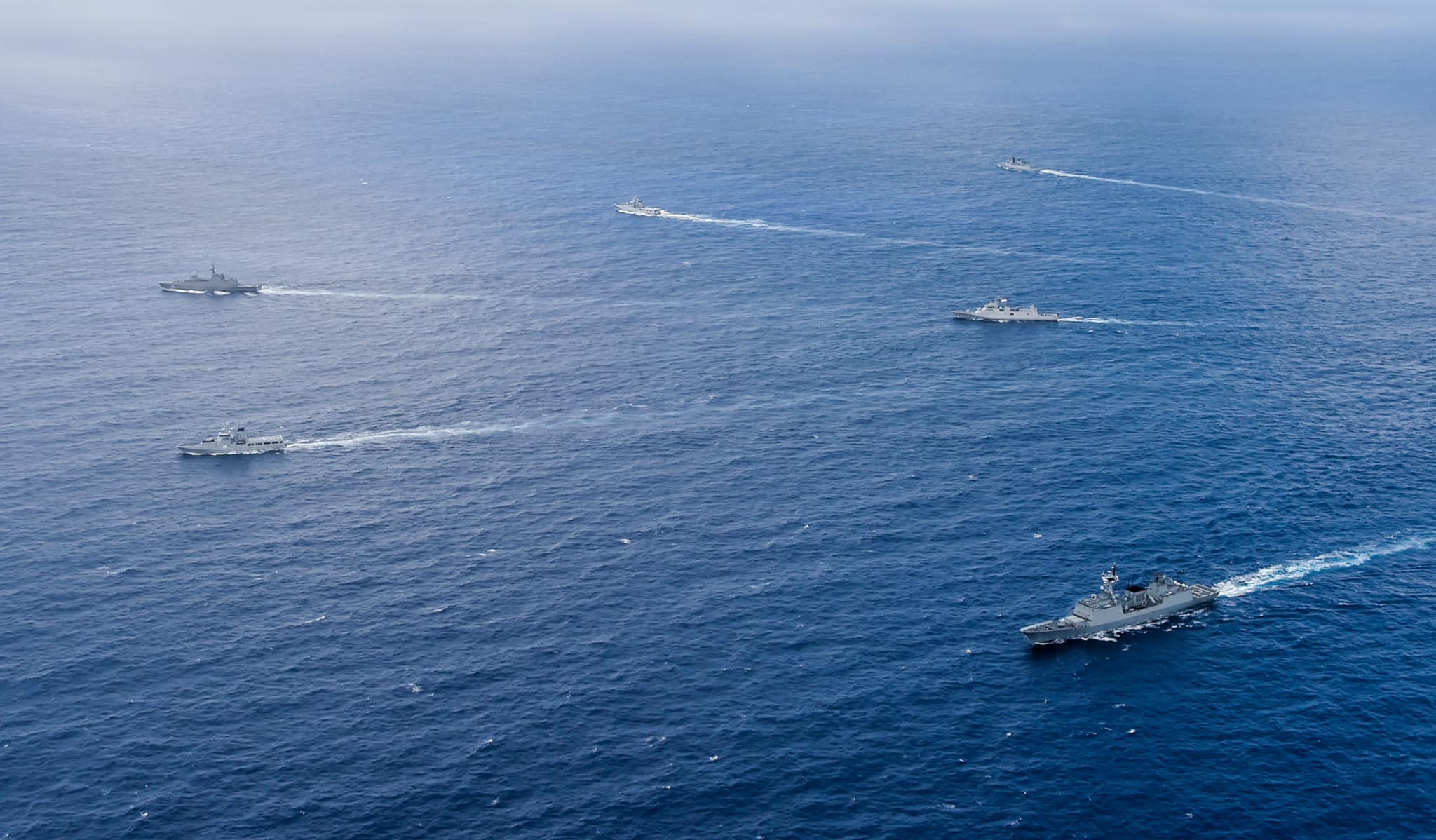THE South China Seas is a vast maritime estate for Malaysia’s Blue Economy, where marine resources are ample and have enriched the nation in many ways. Non-living marine resources provide the main economic artery of the nation in the form of oil and gas deposits. More areas are being explored with the possibility of lucrative gains from fossil fuels and gas.
Living marine resources in the form of edible and ornamental fisheries are huge in potential and are just waiting to be harvested at industrial levels from the maritime estate. Islands and coral atolls provide tourist revenue and raise the nation’s profile in marine tourism.
They say ‘good fences make good neighbours. As China and other nations were starting to claim coral atolls, Malaysia made several overtures in the 80’s to safeguard the northern approaches into the South China Sea. A total of 5 small maritime features were populated, and offshore stations manned by the Royal Malaysian Navy personnel were built. The author himself had the honour to command two of these stations in the early years. China eventually turned adventurism into assertiveness when it sank 3 Vietnamese ships on Johnson Reef in 1988. In 1992, China passed the Law on Territorial Seas, which encompassed almost all of the South China Sea.
Since then, China has been embroiled in the overlapping claims issue with nations like Taiwan and four other claimants from Asean. China was already making plans to become a maritime superpower; it began the game plan, which then evolved into the 2002 Declaration of Conduct of Parties (DoC). China started making claims on peaceful negotiations and Confidence-Building Measures (CBM) based on the DoC. Unbeknownst to Asean, China had a sleeve full of tricks to gain her ambitions.
In 2009, Malaysia and Vietnam filed a Joint Submission to the UN Commission on the Limits of the Continental Shelf, in accordance with Article 76 of the United Nations Convention on the Law of the Sea 1982 (UNCLOS 1982), informing on the limits of the continental shelf beyond 200 nautical miles from the baselines.
In the same year, China published the infamous 9 Dashed Line, complicating claims even further. In the meantime, China used the DOC to halt actions by other claimant states and quietly militarise atolls they claimed whilst carrying out divide and rule tactics with Asean. China played the divide and rule tactic, splitting Asean between claimants and non-claimants. Thus taking unilateral action against claimants while showing her solidarity for Asean through the DoC.
China went from adventurism to assertiveness and became more aggressive in staking claims. China’s focus on South China Sea evolved into several approaches, namely Wolf Warrior Diplomacy (constantly asserting their dubious claims), Cabbage Strategy (use of maritime militia), Greyzone Operations (use of white ships) and Debt Traps (as a leverage for nations to stand down their claims).
In the meantime, China locked Asean into the Code of Conduct (Code of Conduct) discussions whilst they steadily took their time to further their ambitions. Many observers have claimed that the Code of Conduct, which is non-binding was just a stalling tactic for China.
This time the divide and rule tactic extended to countries outside Asean. In the case of the CoC, China advocated that the South China Sea issue should not involve countries other than those in the semi enclosed sea. This attempt is to ensure China can bully Asean through submission.
In 2018, the Foreign Ministers of Asean and China announced the agreement on a Single Draft South China Sea Code of Conduct Negotiating Text (SDNT) to serve as the basis for the adoption of a Code of Conduct in the South China Sea.
In 2023, China released an extended version of the nine-dash line map to include 10 dashed lines. In October 2023, the third reading of the SDNT started. Experts view the non-binding nature of the CoC as a ploy to further delay the resolution on the South China Sea.
In the next bag of tricks, China has again promised Asean a binding CoC. Meanwhile, China is aggressively pressuring claimant states to achieve her ambitions through bilateral agreements and then go gallantly into agreeing for the binding CoC. This final tactic will ensure that China’s long awaited game plan will be successful.
Malaysia has always treated China as a worthy diplomatic partner. In fact, Malaysia is the first Asean member to recognise Communist China.
Malaysia has made several overtures of peace towards China and has downplayed many issues involving China in the international media. In light of the recent exposure of the detailed protest by China on Malaysia’s oil and gas exploration and development in the EEZ, China has proven that there is no such thing as a benevolent power. China will continue to pursue her ambitions no matter what Malaysia thinks.
Therefore, it would be prudent for Malaysia to remain within the existing Asean mechanisms on the DOC and continue to demand a binding CoC. Malaysia is advised not to engage with China on any China-Malaysia Bilateral Consultation Mechanism on Maritime Issues. These attempts will expose Malaysia to China’s game plan as experienced by the Philippines and Vietnam. Exploration and development of oil and gas activities should be based on commercial proprietorship, beneficial to Malaysia, and not dependent on political exigency. Malaysia should benefit from the gift of a vast maritime estate, monetise it, and safeguard it for future generations. In addition, Malaysia should never get into a bind where she forgoes her loyal friends around the world as contingencies for the South China Sea. – September 5, 2024
Captain Martin A. Sebastian served for three years in the UN Headquarters, New York. On return, he was appointed as senior fellow in the National Maritime Think Tank for nine years. He continues to write extensively on maritime issues and speak on maritime security.

